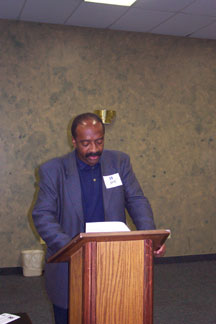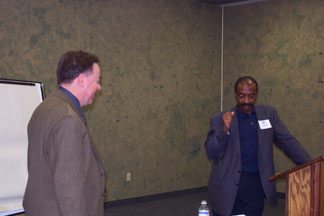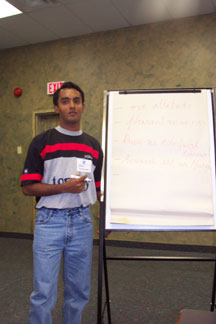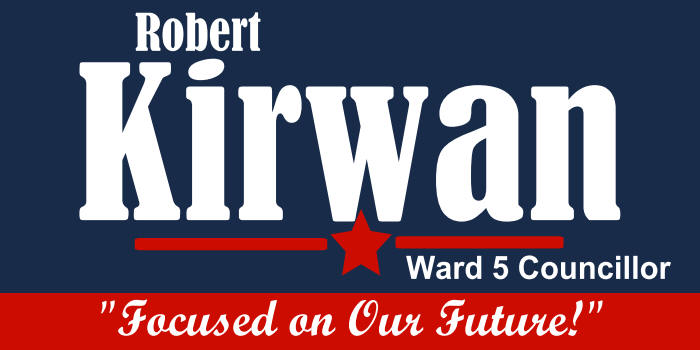 Jack
Braithwaite, a partner with the legal firm of Gatien Braithwaite, is the Chair of the Student Business Mentorship Committee. He
presented the participants with
some very important advice during the workshop.
Jack
Braithwaite, a partner with the legal firm of Gatien Braithwaite, is the Chair of the Student Business Mentorship Committee. He
presented the participants with
some very important advice during the workshop.
“This is an ‘experience’ as opposed to
a program,” explained Braithwaite at the outset. “We want you to meet and
observe the life of a business person. This is your chance to be a ‘fly on the
wall’. You will very seldom get a chance to just ‘be there’ where you can
sit back and watch the work day unfold.”
The ‘experience’ matches students with local
businesses. Students spend time with the business leaders in order to see
first-hand how the business operates.
It was suggested that the student and the business leader
should expect to meet at least five or six times during the school year to get
any value out of the experience. Each session lasts at least two hours and will
involve observation, feedback and reflection by the parties.
Indeed, the “experience” begins with the student (Mentee)
accepting responsibility for making first contact with the business owner
(Mentor). Braithwaite had several suggestions on how to make the most of the
experience by making the right moves right from the beginning.
“Remember that this is your experience. What you get out
of the program is what you put into it. This means that you must be aggressive
and take the ‘bull by the horn’. Your mentor is expecting your call, so get
to the telephone and call to arrange that first meeting. But before you pick up
the phone, be prepared,” explained Braithwaite.
 Greg
Babij, on the left, volunteered to participate in a
little role-playing exercise with Braithwaite to demonstrate the right and wrong
ways of making contact with the Mentor.
Greg
Babij, on the left, volunteered to participate in a
little role-playing exercise with Braithwaite to demonstrate the right and wrong
ways of making contact with the Mentor.
“When you make the phone call, know what you want to
achieve. Be prepared if the Mentor asks you for your schedule to arrange a
meeting. And don’t assume that the Mentor has read your resume and knows
anything about you. Be prepared to answer questions,” he stated. “That first
call can be a real stumbling block. You may have to get through a receptionist;
the mentor may be busy or in a meeting; you may have to call back or leave a
message. If you are asking him/her to call back, make sure you give a specific
time when you will be available for the call and leave a clear message. This is
your only chance to make a good first impression.”
 Simson Kolencherry of Cambrian College volunteered to
record comments during the presentation. Participants made several well-informed
suggestions.
Simson Kolencherry of Cambrian College volunteered to
record comments during the presentation. Participants made several well-informed
suggestions.
One person stated that students should make sure their answering
machine message is business like if they are going to ask the Mentor to call
them. Another suggested that the Mentor be addressed in a formal manner until
the Mentor suggests a more relaxed format. Dressing up was also recommended.
Braithwaite told the audience that it is always easier to “dress-down” to
what the company expects, but if you walk in wearing jeans and a sweatshirt when
everyone else is in a suit, it will be a hard impression to overcome. One
student advised that everyone bring along a copy of their resume in case the
owner has misplaced the original one.
“It is critical that you prepare well for the first
meeting,” advised Braithwaite. “Read up about the business and know what you
want to accomplish during the year. When the Mentor asks questions, be ready
with answers. And when you leave, make sure you have scheduled the next meeting.
This means you must know your schedule.”
“During the meeting, make sure you maintain eye contact
and show a high level of energy with your body language. Even if the Mentor
lacks enthusiasm, you must stay focused. Remember, this is your experience.
